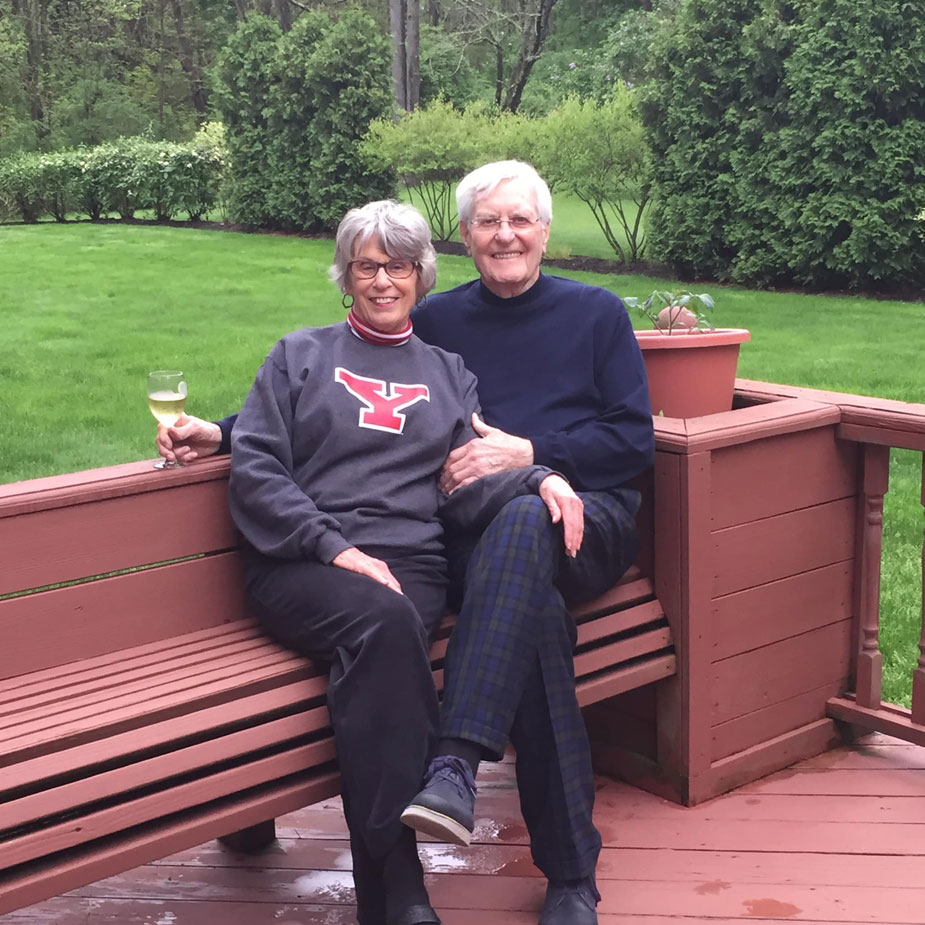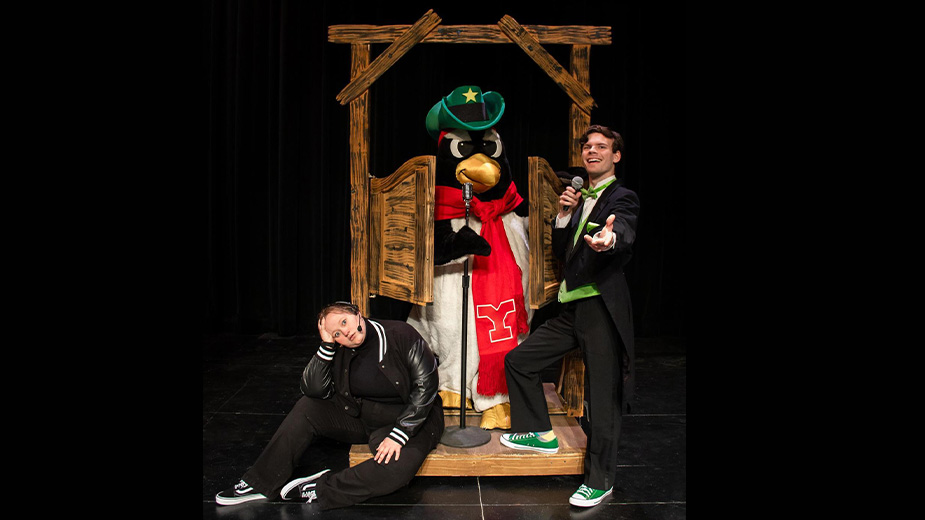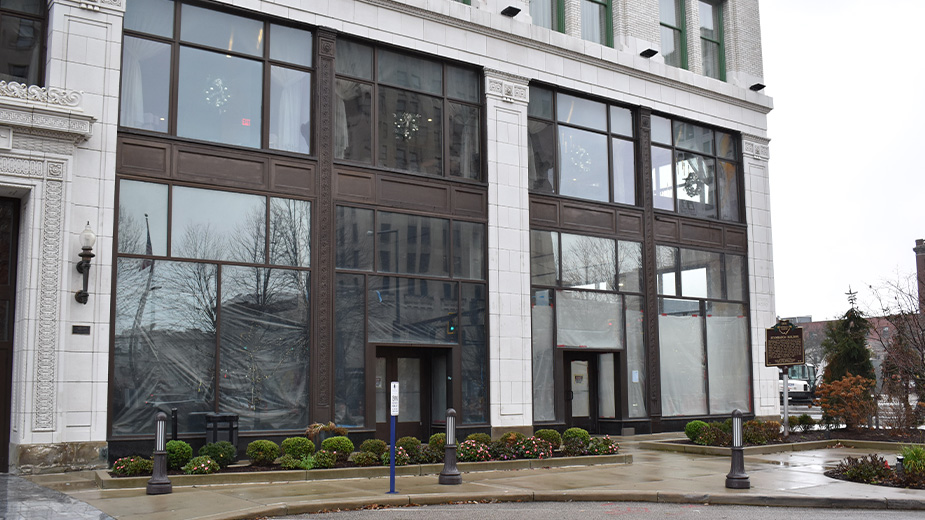Commentary: Remembering Dick McLaughlin
YOUNGSTOWN, Ohio — Richard P. McLaughlin, “Dick” to all who knew him, saved my publishing career and this newspaper.
He and four other men came to our rescue in the very early years of the Youngstown Publishing Co. when we had very few advertisers and paid subscribers. To stay alive, we needed investors who understood there would be no return. And we needed to implement sound business practices, something I knew very little about.
So it was that businessmen Clarence R. Smith Jr. and the late Arnold Collins bought stock and co-signed bank loans; they wanted a positive voice for local business, an alternative to death-of-steel rewrites.
The Vindicator’s retired political editor, Clingan Jackson, bought stock so payroll taxes were paid. I profiled Clingan in 1980 for WYTV’s short-lived documentary series, “Journal.” In his retirement, we grew close and he agreed to write a column. My father, Harold F. Wood Jr., a born salesman and entrepreneur, came to the company’s rescue many times with sound advice and short-term no-interest loans.
Through it all was the towering presence of Dick McLaughlin, who steadied the ship (and me). Dick came to the rescue two years into the venture, when our company was tearing apart over a management dispute that presented shareholders two options: Declare bankruptcy or give me their backing and the chance to turn the company around.
As Dick remembers in the memoir of his “time at work,” published in 2018 for distribution to family and friends, “…The publication was having troubles with newspaper content, circulation, management and finances … It was a great concept and Andrea believed there was much potential.”
At the time, local business news niche publications were popping up in large cities across the country. What became the nation’s largest business newspaper chain was beginning to acquire titles in cities that were prospering.
Youngstown was not.
As Dick writes in his work memoir, he provided the Youngstown Publishing Co. “corporate governance and general business counseling. In addition, there have been a few interesting public records issues [that] we litigated. We also successfully defended a libel suit without paying one red cent to a very angry plaintiff corporation.”
On the inside back cover of his book, “From the Rear View Mirror,” a
collage of newspaper headlines from his career concludes with this one: “MetroPlex Drops Libel Lawsuit Filed Against Business Journal.”

I first encountered Dick when I was cub reporter covering Youngstown City Hall. He was the attorney representing the late Richard E. Mills, the flamboyant businessman whose Ohio One Corp. built City Centre One and had a contract to manage the parking deck the city built in the early 1970s to complement the Federal Plaza pedestrian mall project.
When the company was teetering, he introduced me to Mills. Soon the company moved from Class D office space in the Uptown to the ground floor of the parking deck. Mills agreed we could pay the same rate we paid on Market Street, $150 a month.
There were so many powerful connections Dick made for the paper, vouching for us as he offered ideas to improve its content and lessons on business management.
In 1987, Dick brought Dan O’Brien to The Business Journal. O’Brien, today our associate editor and investigative reporter, grew up on Coronado Avenue, next door to the McLaughlin family. Dick knew that Dan’s hobby was drawing political cartoons, that his work would distinguish The Business Journal.
It was Dan who first told me Dick died Aug. 9 leaving his wife, Betty, their four children, 14 grandchildren, two great-grandchildren and “dozens of nieces, nephews and friends,” as his obituary states. He was the last of 10 children, born in 1934 when his mother, Elizabeth, was 43. His father, Michael Vincent, would die four years later, and his mother would have to
provide for the family.
Dick was a true “Northsider.” He was baptized at St. Edward Parish in Youngstown, was an altar boy, attended St. Edward School, Ursuline High School and Youngstown University. He was married at St. Edward Parish and eulogized there Aug. 13.
He served the Mahoning Valley in numerous ways; founded Mahoning Valley Cablevision, the local chapter of the Epilepsy Foundation and co-founded the Catholic Television Network of Youngstown. He served on the boards of the symphony, the Playhouse, The Butler, the YMCA, YSU and the YSU Foundation.
He caught the political bug in 1956 when he watched the Democratic Party national convention on TV and saw John Kennedy turn down the nomination for vice president.
“I had found my new hero,” he wrote.
After serving in the Army, he moved to Washington to study law at Georgetown University. With an introduction through a family friend, he came to the attention of U.S. Rep. Michael Kirwan, the Youngstown councilman elected to Congress in 1936. Kirwan got him a job operating an elevator in the Capitol, connected him to JFK’s presidential campaign and became his patron.
He worked at the U.S. Labor Department, a D.C. law firm and was appointed general counsel for the Federal Mediation Service. In that position, he helped to settle a labor strike at G.F. Business Equipment Corp. in Youngstown.
In 1968, Dick signed onto Hubert Humphrey’s presidential campaign. When Richard Nixon won, Dick knew he would soon be in the political wilderness. So he came home in 1969 with high hopes of succeeding the ailing Mike Kirwan.
“Here I am, fresh from Washington, D.C., filled with my Washington experience and Potomac fever, and my law degrees, all ready to go out and solve world problems. No such luck,” he wrote.
The Mahoning County Democratic Party, then controlled by the legendary Jack Sulligan, did not take kindly to upstarts. Nor did organized labor. In a special election (Kirwan died in July 1970) field of 13, Dick ran second, losing to state Sen. Charles Carney, a former staff representative for the Rubber Workers and Steelworkers. In the 1972 Democratic Primary, Dick was Carney’s sole opponent.
This time Carney took 53% of the vote.
Carney would serve four undistinguished terms, only hitting the national radar when it became known that he took more than 60,000 free surplus books from the Library of Congress.
I’ve often wondered if the entrenched corruption and power structure that stunted economic growth in the Mahoning Valley would have been derailed had Dick’s campaign against “the Machine” succeeded been.
“From the Rear View Mirror” includes one paragraph about his 1972 campaign that sustains the quixotic fantasy:
“I proposed establishing an Iron and Steel Research facility right here in the
Mahoning Valley. It would have been a public-private nonprofit corporation
consisting of YSU, where it could be housed, the National Research Foundation, the Steelworkers Union and the American Iron and Steel Institute. Using the local steel mill facilities as the ‘laboratory,’ the corporation would engage in research, testing to promote the development of new steelmaking processes and technology to modernize the U.S. steel industry. It was also intended to identify inefficient and unproductive workforce customs and practices that had developed over the years,
and to revise, improve or eliminate them to avoid future workplace disputes.”
Dick McLaughlin was a statesman, a statesman for the Mahoning Valley. He should be remembered.
Copyright 2024 The Business Journal, Youngstown, Ohio.



